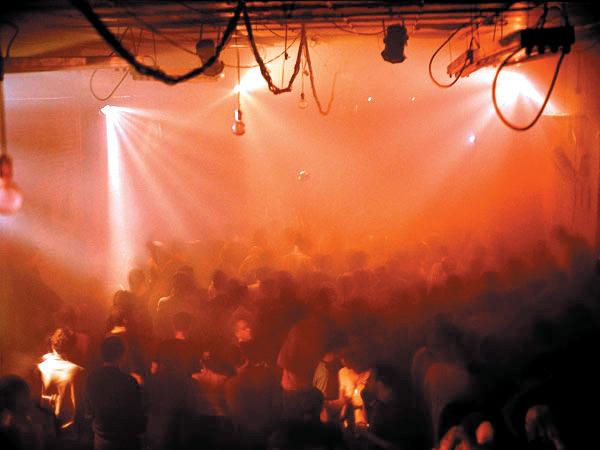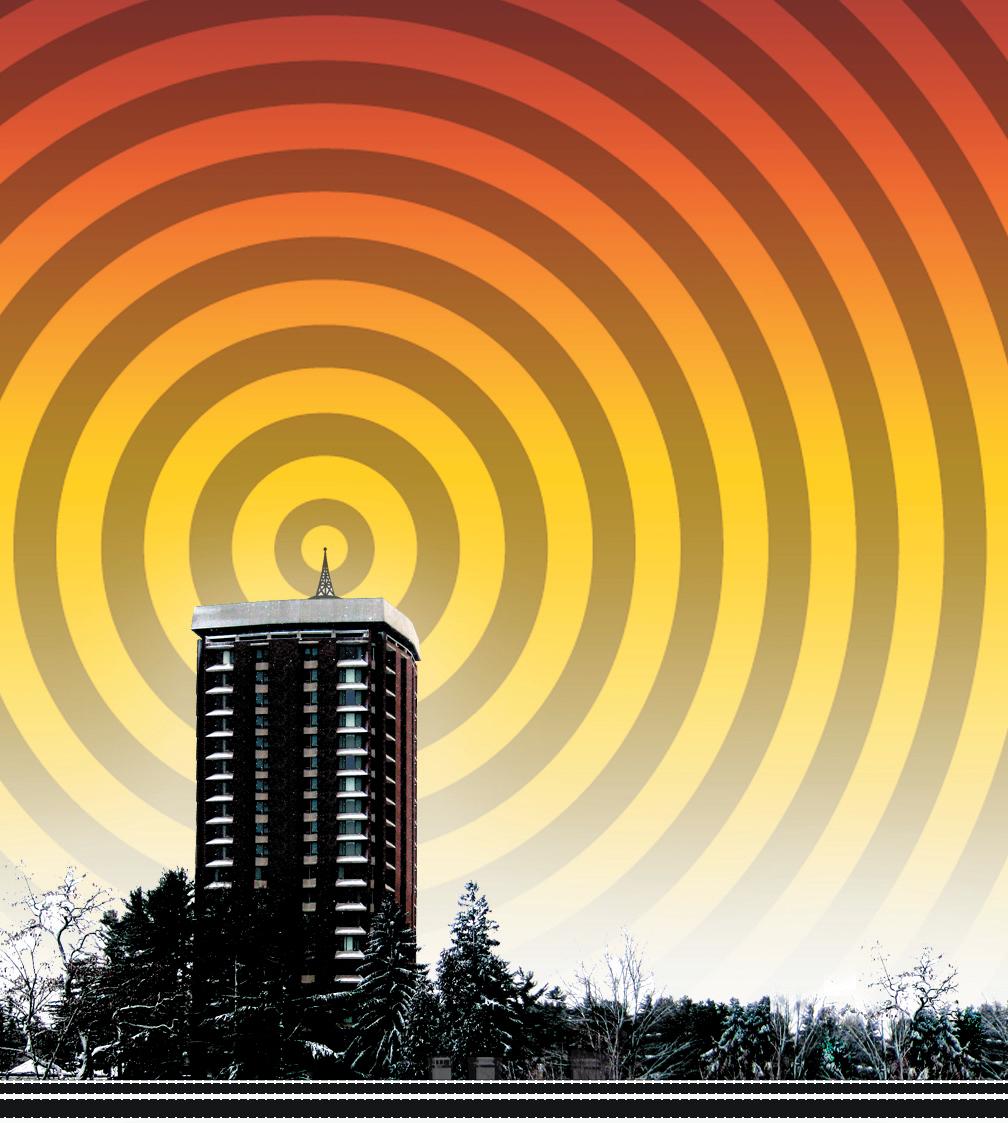

T H3 R D ISSUE : Senior Editor Cory Hiar chiar@






Copy Editor Alice Lee alee@
Layout Design Ted Power tpower@

Weʼre a little slow here at Flip Your Shit. I like to think of it as deliberate. Sure, weʼre publishing our February issue at the end of said month, prominently featuring a “Best of 2004” article, but that just means weʼve spent plenty of time considering what we want to say. Some things are better with time...some things are not. Case in point: one hit wonders from the early 90s (Reel Big Fish). Why am I bitching about Reel Big Fish? Well, because of all the bands currently rocking the music world, a second rate ska punk band is the one the fucking Campus Activities Board has decided to bring to campus to headline this yearʼs Ivies Weekend Bear Aid. Let me be the first to ask the obvious question: what the fuck? The Campus Activities board has left me no choice but to get so drunk I donʼt remember the show. In previous issues, Iʼve used this space to encourage people to listen to music and/or write about music; this month I just want to beg people to join the Campus Activities Board. Iʼm gone after this semester, but for the sake of the Bowdoin/Brunswick community, would some musically inclined underclassmen please keep this from happening again? And while Iʼm bitching about the Campus Activities Board, Iʼd also like to say that Matt Nathanson sucked. If you disagree with me, write alee@bowdoin.edu and we might put you in the next zine... coming out soon. Enjoy this one for now.
CONTENTS
GENERAL WRITING
Bitterly yours,
 Senior Editor Cory Hiar
Senior Editor Cory Hiar
4
7
10
11
Indie Rock Stars Attack Bowdoin College!
Where’s the Good Music?
Chris Felax
The Radio Revolution
Alice Lee
Sarah Moran & Judgie Fuller Grahm 2 Fringes Connor Williams
9 Sibling Rivalry - CD Burning Cory & Erica Hiar
Silence Karina Van Schaardenburg
CONCERT REVIEWS
13 ALBUM REVIEWS
The Futureheads - And Dancing Is Permitted...
Tauwan Patterson
Cory Hiar 15
Bright Eyes - Wide Awake & Digital Ash
The Decemberists - Picarsque
Andy Fisher
Best Of ‘04
Ted Reinert
Indie Rock Stars Attack Bowdoin College!
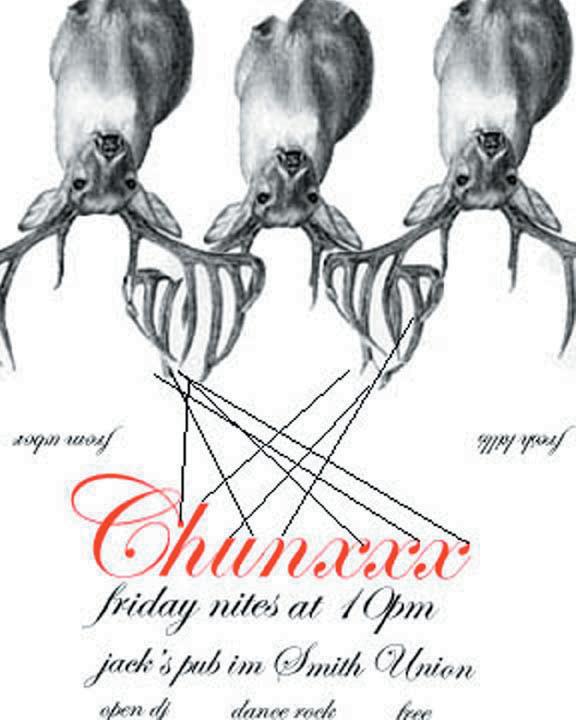
Sarah Moran & Judgie Graham
Tight jeans. Shaggy hair. Vintage t-shirts. Hot guys....this doesnʼt look like Bowdoin to me. Smith Union was transformed into Maineʼs hipster Mecca for one night only last Saturday when WBOR brought The Secret Machines, Moving Units and Autolux for their annual concert.
Autolux was the first band to brave the temporary stage setup in Morrell Lounge. Autolux set the mood for their hauntingly lo-fi pretty punk rock by decorating the stage with squares of clustered Christmas lights. All the boys in the audience swooned when Carla stepped out from behind her drum kit to take the mic and with a melancholy sweetness sang Asleep at the Trigger. Their set was a short one to make way for the next band, Moving Units, to jump in the spotlight..
The spotlight, however, seemed to be missing as Moving Units performed their dance rock in the dark. The lack of electrical lights was made up for in their hot electric sound. Moving Units was able to pour their energy into the eager crowd. Speaking of tight jeans, no hipsterʼs jeans in the entire audience were as tight as Blake Millerʼs, Moving Units sexy vocalist. The highlight of the set was when the insane (and I think we actually mean insane) drummer, Johan, after beating the hell out of his very expensive drum kit did a clapping circle around his instrument in some bizarre rock and rock tribal ritual. We loved it.
Wait, wait...there is all this smoke and no jam band! Whatʼs going on? Ohh, different smoke. The Secret Machines came equipped with their own light show. Smoke billowed blue and red as they dazzled the audience with ethereal rock music and hot YSL
boots.
The band members stuck around after the show to flirt with college girls and hang out in the swanky Brunswick hot spot known as The Pub. We all had our favorites, whether it was the shy indie boy in Autolux, or the imposing guitar player in Secret Machines, but the one who soldiered through till dawn is our pick for rockstar of the month, Blake from Moving Units. Blake, who also DJʼs at clubs in LA gave a few kids a special after party Djing till dawn in WBOR with his dance packed ipod. He impressed the WBOR elite with obscure remixes of Bloc Party, Franz Ferdinand and The Buzzcocks. Bowdoin has never been so cool. And probably never will be again.
Our closing comments: yeah yeah, check check.

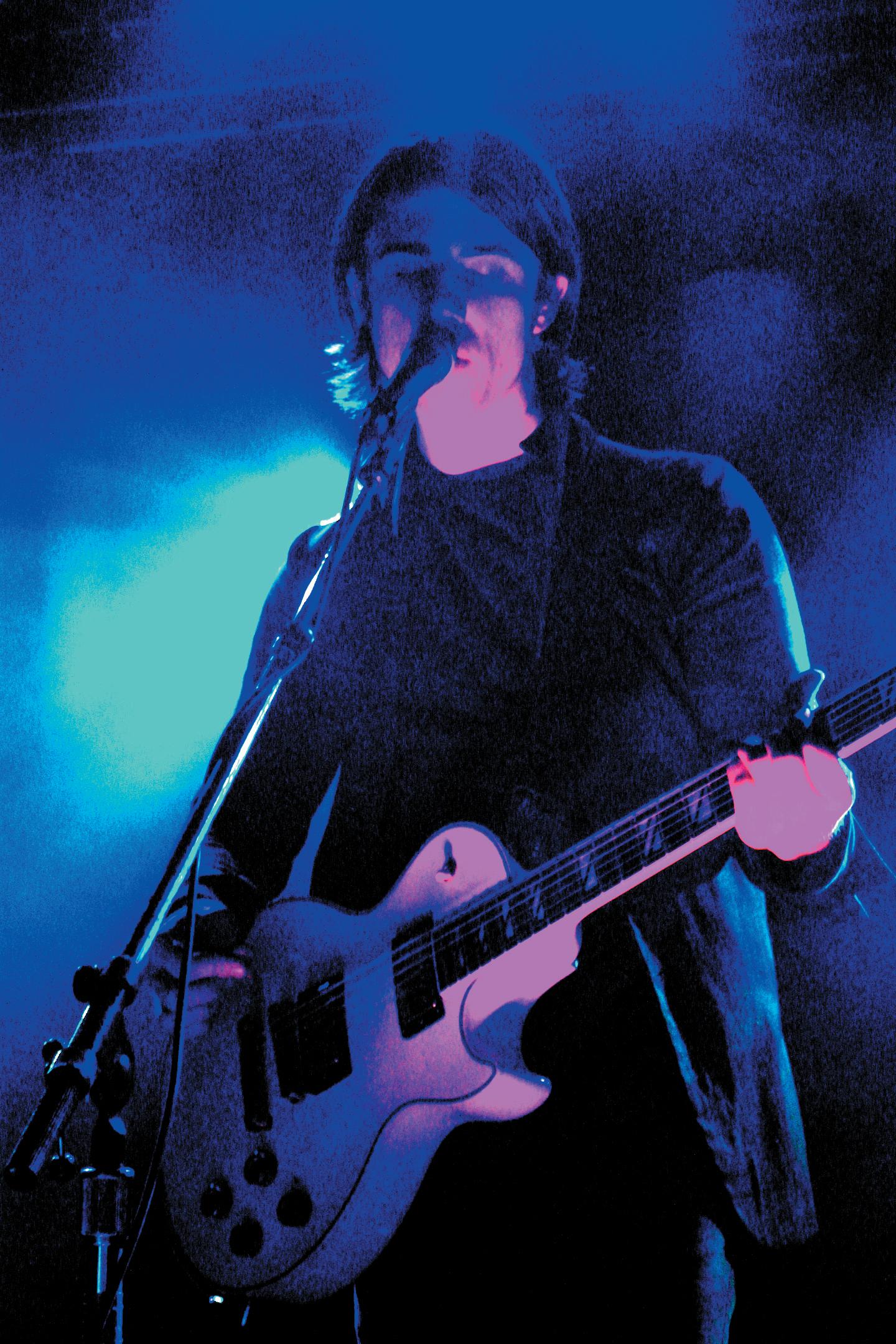 - Sarah Moran
- Sarah Moran
Where’s the Good Music?
Chris Felax (cfelax@hotmail.com)
The phrase, “Whereʼs the good music?,” can mean a lot or a little, depending on the audience. This phrase can be a lament, slogan, challenge, or annoyance. The indie rock listenerʼs whine has always been a list of moans like: “Iʼm sick of the crap on the radio!” “Thereʼs nothing good on!” “Damn, Iʼve heard this song twenty times today!” “How can they play this crap!” For others, the unconcerned, unaffected, or unaware, they still live by the formula and the instant gratification of Eminemʼs latest sendup, Beyonceʼs newest remix, or Blink-182ʼs hot 80ʼs cover. They also donʼt mind their music in quick, 3-minute doses repetitiously peppered throughout their day.
So, whereʼs the good music? It was in the mainstream. It was in your uncleʼs record collection. It was easier at the start. We had fewer venues to get to the good music: radio, clubs, shows, Ed Sullivan, American Bandstand, LPs, a few mags, and singles. Imagine not even having mix tapes, CDs or mp3 lists! Itʼs truly hard to remember. Occasionally, your friend may pause from crimping their hair, or get off the couch after Whoʼs The Boss, and record a mix tape for you. That was tres cool at the time. Yet, even the content of these mixes were typically from a collection of top-40 artists.
Obviously things have changed since Dadʼs bubblegum pop and Grandmaʼs swinging days. Today, media is fed to us by a multi-armed, pressure-dealing, eight-faced, foul-tempered, fickle hit robot that cranks out putrid replicas, slight variations on familiar themes, and any exponential spin-off on a proven cha-ching recipe. All in all itʼs just another brick in the media wall, yo. It pumps through the radio like
a subtle chain reaction of the system feeding on itself and regurgitating the music in a shade lighter bling or a more polished shizzle.
So, then what of the phrase, “Whereʼs the good music?” For the good stuff we need to look a bit deeper than top-40 or MTV, widen our attention, and begin to actively seek out the good stuff. It wonʼt just sneak up on you one day, you actually have to go out and hunt it down and bite it in the ass and hold on! Where do we find the good music? The best means these days is the internet. Yep, equal parts friend and foe, Mr. Dubya-Dubya-Dubya has many friends in the music biz and a large library of knowledge. Without the benefit of U.S. defense-grade budgets, we find independent music has had to thrive on the web, not on the radio or in the latest issue of Rolling Stone. Itʼs affordable to get your message out and not pay “the Man” half your cash to do so. There are many free music download sites, file-sharing programs and services (both paid and free), online web-zines, and record company websites for one to peruse the hidden gold. You no longer have to solely rely on radio, television, or magazines to get your music. This is good. But, you have to burrow a few layers down, get your hands dirty, and warm up yer mouse-clickinʼ hand. These tasty audio nuggets are downloadable as music files. They usually exist in mp3 format, but are also delivered in streaming audio formats like Windows Media, Real Audio, Live365 and others. Sound quality can vary as much as artist quality. It takes some practice and searching to find good sites and good resources. I wonʼt get into the whole debate over legal/illegal download sites, and all that hoopla, weʼre just talking about good music
for now.
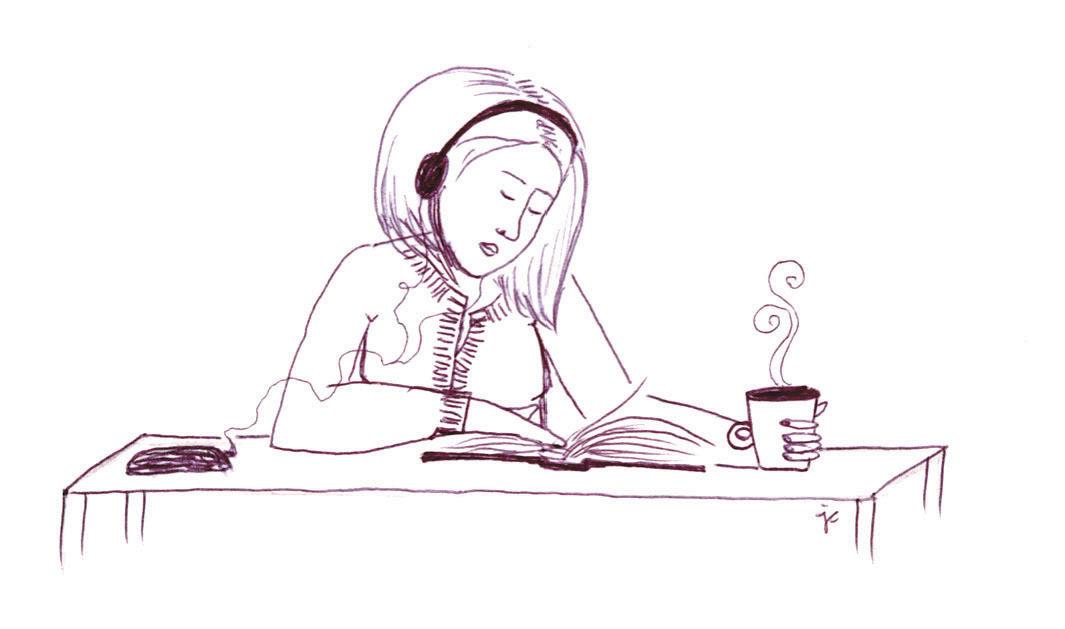
So, once youʼre surfinʼ the info parkway, what next? Depending on your music tastes, there may be more or less available depending on genre. Options are limited by interests - sorry Zither Disco Covers lovers, youʼll need to look very hard! Iʼve found sites like: Pitchforkmedia.com, Insound. com, and Epitonic.com (just to name a few) have a variety to choose from. The latter, Epitonic.com, has genre links and will give you several artists that sound similar to the one youʼre downloading, so you can hear more tunes of the same genre and branch out. I often find myself bouncing around through these recommendations and landing on an artist that I havenʼt heard of yet. This is how my knowledge grows. These three mentioned sites have hundreds of free full-length mp3s to download. Many of my own mixes have been half-full of these newly discovered gems. These artists are the ones that slipped under the radar and are just waiting for a new audience – You. But, if true alternative music is what you crave; that is, alternative to whatʼs on the major radio stations, then check out these sites or do a Google search on mp3 downloads.

As for the download sites in which you have to pay for the privilege to download, iTunes.com and Napster.com are among the best. But, Iʼm sure most of you know this and have already taken a look. The one good advantage to these sites, even it you donʼt want to shell out $.99 a track, is that you can listen to snippets of thousands of songs. This way, you can get the general flavor of an album and decide if itʼs worth buying the whole meal or just a few side dishes. Some Russian
downloads sites offer cheaper track prices, but not all are well organized. One site I use religiously is: www.mp3search.ru. This site has a huge online database and is updated daily. Tracks are only $0.10 compared to $.99 for most other download services. Then of course, we have the file-sharing download applications which allow us to share the good music – for free. These programs vary in approach, audience, effectiveness, and purpose, but a good portion of us music freaks now use these apps to find our tunes. Iʼve found these file-sharing apps have only increased my purchasing habits since I can hear so much more good music. Applications like Kazaa, Limewire, SoulSeek, Napster, Grokster, Acquisition, Morpheus, and many many more, give us the freedom to check out unreleased albums, rare tracks, covers, live material, and last but not least, legit studio tracks. Again, I wonʼt get into a debate over legality, but itʼs a mighty resource that has served my musical mojo well. Iʼve learned so much about good music, and itʼs such an organic, tangential journey, that I canʼt stop recommending it. Plus, I find new bands and // C ontinued on page 6
- Jenny Cooksongs all the time and want to learn more about, and ultimately, buy more too. Sure, not everyone will do the same. Some people only search for the latest hit single, or the entire O.D.B. (r.i.p. Big Baby Jesus) catalog, but you canʼt ignore itʼs influence. If not for the original Napster, iTunes wouldnʼt even exist! Some people search for the newest unreleased album (months away from official release date) and burn copies to impress their friends. The few negatives – varying sound quality, bogus tracks, spyware – are outweighed by the benefits of having a vast music library to choose from. This is an ever-evolving, moment-in-time snapshot of the music community from one minute to the next. The only music you see on these file-sharing apps consists of tracks that exist on each userʼs computer that happens to be logged on the same time as you are.

One last newbie to this music venue smorgasbord, is satellite radio. Itʼs the new kid on the block, but its personality hasnʼt quite developed yet. The initial benefits touted by the two major players – XM & Sirius – havenʼt been really proven either. Both offer
100-200 radio stations of varying genres, including news, sports and religious stations. The music is claimed to be continuous, but that will surely change when more users adopt this service and advertising becomes lucrative. Two formats, one idea, so whoʼs going to be the Betamax here? This will be hard to judge. Sirius claims NPR news, but XM does not. XM has the Weather Channel news, but Sirius does not. Both have varying channels from varying broadcasting giants and the advantage is hard to see so early in the game. Whoever can claim the most subscribers will probably win the battle with a little marketing savvy thrown in for good measure. It would be nice to have more radio channels available (and without commercials), but again, the playlists are ultimately dictated by a big company. Itʼs a rough compilation of what they think you should listen to and what you should buy. Itʼs a promising start, but I fear it will eventually fall to the dark side (damn you Clear Channel!)
As music evolves, so will our means to listen to it. These internet applications and services are the fast-
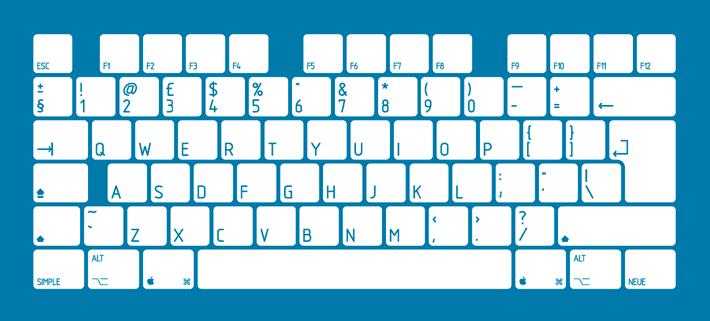
est to adapt and improve depending on the changing needs of its audience. Thereʼs no production budget, assembly line, distribution cost, touring budget, etc. These sites can morph overnight and add features, content, and functionality and all as need dictates. For the untrained, web surfing can be daunting, intimidating, and even dizzying, but the results and benefits are there. People are used to the internet now. Itʼs a living, breathing entity that is created by the people for the people. Yet, the only stick in the musical mud also comes back to the people. We have those that abuse these music sites and services. We have people trying to derail the freedom aspect and force a profitable alternative, a business model. We have artists on both sides of the fence claiming free music is either blatant stealing or a new way to be heard. For now, weʼre still in love with our portable
hardware and old fashioned radios. We want our throw-away singles and hits. Mp3 players, iPods, portable satellite radio, walkmen, cellphones, PDAs, and other devices, play our music as we like, when we like. We still want something tangible and tactile to serve us our musical fix. We still want cachet and class and the ooh-aah aspect of a neat device. As the market changes our tastes change along with it. The iPod and its cloned ilk are making a great bridge for the analog-to-digital change-over. Itʼs helping us add personality and individuality to our music collection and itʼs becoming a statement again.
So when people still ask you “whereʼs the good music?” Tell them “itʼs out there.” Itʼs online. Itʼs on your iPod or cell phone. Itʼs on your computer. Itʼs on our minds. Itʼs on the horizon waiting to be heard. But for now, itʼs definitely not on the radio.
The Radio Revolution
Alice LeeEveryone has a favorite radio station or two- itʼs the station thatʼs pre-programmed in your car, the first button you mash when a commercial comes on. Maybe itʼs the top 40 station, the 80ʼs, 90ʼs and Today station, Frank FM, or whatever else, but chances are, despite your preference for it, this radio station has “the sickness.” Itʼs an epidemic, really. Regardless of genre, commercial stations across the nation have been showing symptoms for years. Endless advertisements, obnoxious morning shows, ignorant DJs, a narrow selection of music, and general mismanagement are the most prevalent. The most tragic aspect of this dilemma is that although most people are willing to admit that radio is annoying, they donʼt do anything about it. As a result, commercial radio is slowly but surely ruining music.

A year ago, I would have been perfectly happy to agree that 107.7 The End, a Seattle-based radio station, and my personal favorite, had a bad case of “the sickness.” Although they claimed to be “Seattleʼs alternative radio station,” they were playing nothing but Limp Bizkit, Adema, Nickelback, Linkin Park, Good Charlotte, Papa Roach, POD, etc. My once favorite radio station had become just so much crap.
Sometime near the end of 2003, The End got busted for accepting money to overplay certain bad songs. Although this situation speaks despicably of the station (and perhaps my choice of stations) it paved the way for a type of radio revolution. Instead of going back to playing the same bad bands theyʼd been playing before, only not accepting money to do
// C ontinued on page 8
it, The End decided to return to its roots.
In Seattle and the surrounding suburbs (i.e., the rest of western Washington), good music is not hard to come by. Everyone knows the big names: Pearl Jam, Soundgarden, and of course, Nirvana, but thereʼs so many more: Jimi Hendrix, Death Cab for Cutie, Modest Mouse, The Postal Service, Murder City Devils, etc, etc, etc. By returning to its roots, The End opened up the doors to an enormous volume of local music, as well as alternative bands from everywhere in the US and beyond.
Not only did they begin playing amazing music, new and old, they began doing something no radio station in my knowledge has ever done- listening to their listeners. After compiling a list of listener complaints about the station pre-revolution, they were able to come up with an “Alternative Declaration.” Below, I have provided a copy of the Declaration, which is also available at www.1077theend.com.
1) Itʼs about the music.
2) We will listen to our listeners and treat them with respect.
3) We will tell you the artist and title of every song we play.
4) We will support local music, bands, and shows.
5) We will respect the music, the artist, and our listeners by never talking over the songs.
6) We will seek out and support new music.
7) We will employ knowledgeable deejays and give them control of their shows.
8) We believe in diversity and will be open-minded about what music we can play.
9) We will play any good song on an album, not just the “hit” single.
10) We will surprise you with songs you havenʼt

heard in a while.
11) We will play more songs and repeat them less often.
Surprise, surprise, the number of listeners, which had been dwindling, skyrocketed. By moving away from playing exclusively teen angst music towards a more grunge/late80ʼs/indie focus, they not only gained back listeners, but began to appeal to a somewhat older (more mature?) crowd. They even throw in the occasional Bob Marley or U2 song.
My point in describing all this is twofold. First, Iʼd like to thank The End for not sucking anymore, but more importantly, I wanted to remind all you consumers of commercial radio out there that there is hope. The Endʼs reformation shouldnʼt be the end (hahaha) of a possible radio revolution. No matter your preferred genre, no doubt thereʼs a radio station out there that could use a bit of reform, if only a reminder that respecting the songs, artists, and listeners goes a long way and, that when it all boils down to it, “Itʼs about the music.”
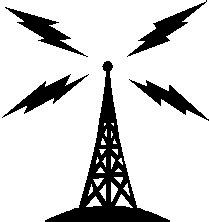
Silence
Karina Van SchaardenburgOk, so maybe Iʼm mellowing out in my old age. Iʼm done with my teenage rebellion and am now ready to settle in a suburb and take up water coloring and Tai Chi. Whatever the reason; I have recently begun to appreciate what I see as a completely underrated art form: silence. I know all the typical clichés written on greeting cards about speaking without words and paths through snowy woods. So do you if you if youʼve been paying attention for any length of time since you were born. But as with most clichés, they are repeated so often because they contain a smidgen of truth.

My problem with noise is that it all wants things from me. It invades my ears and mind and relentlessly requests that I do certain things. My alarm clock and the construction of the new freshman dorms have schemed and joined forces to wake me up at dawn. The sound of my fire alarm means Iʼve probably burned the popcorn again and should probably feed it to the dog and find a ladder to turn of That God-awful Ruckus. My professorsʼ voices want me to be able to navigate the intricacies of the philosophical implications of quantum physics. The TV wants me to buy things immediately so they can have my money in exchange for high quality air purifiers! (I donʼt listen to that one.)
Bands are no different. Each has a mission statement. The good ones convey it through their sound. The bad ones, well, I know weʼve all heard Mates of State. Some want you to overthrow the government and worship pagan gods. Some want you to sit around sipping gin and tonics while discussing the plight of the modern woman. Some want you kill yourself. But when you get right down to it, most just want you to get down. Silence is nothing more or less than the blessed absence of demands. John Cage did for music what Duchamp did for art when he composed
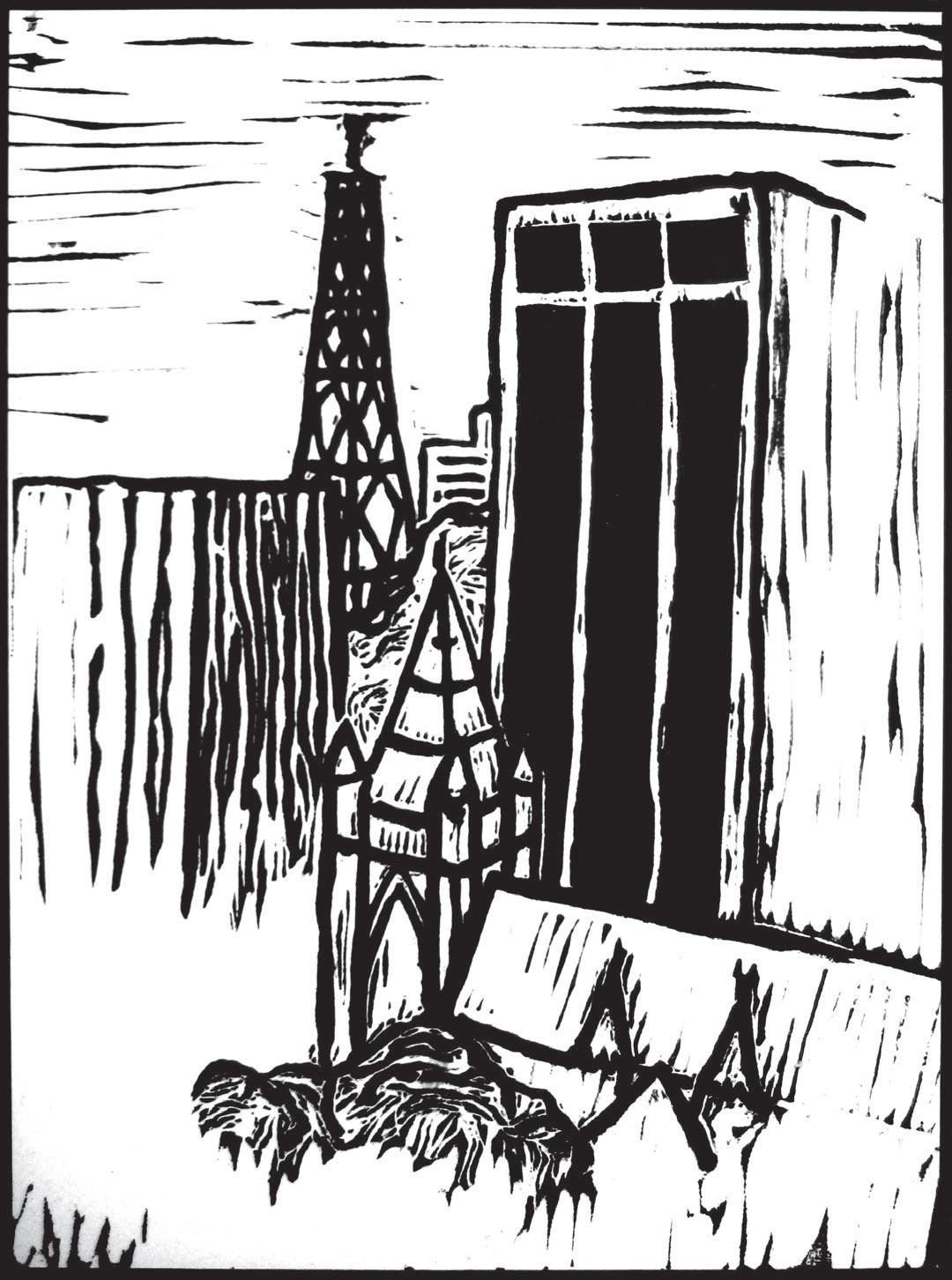
4ʼ33”, a work of silence lasting for the specified duration. Audience members used to being crammed with external auditory stimuli were left with space to explore the sounds of their own heartbeats and breathing, space to hear their own thoughts. Bands like Explosions in the Sky, Unwed Sailor, and Low use that space to add weight to their crescendos. Anyone who doubts the value of silence in music should listen to the silence that first converted me: The 40 seconds in the middle of Fuckʼs song “Panties Off.”
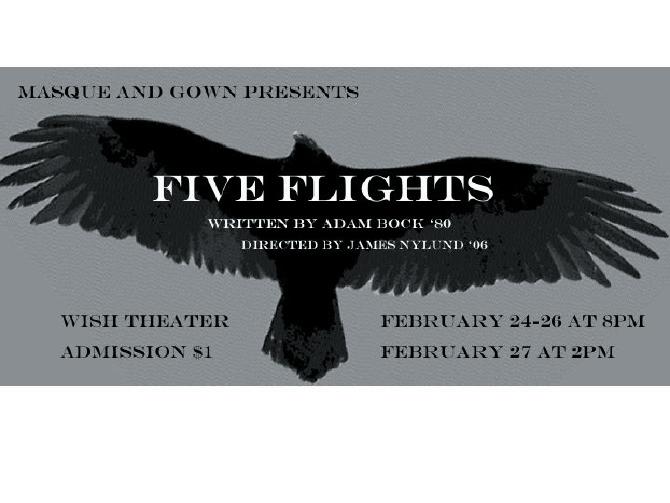
So go ahead, give yourself a vacation from sound. Protest the construction. Unplug your phone for a day – oh, and while youʼre at it, unplug your stereo too.
Fringes
Connor WilliamsFaithful readers of “Flip Your Shit” will very likely have learned that “good” and “bad” music are often distinguished by how they are perceived by groups. Sure, itʼs simple to say that the attitude of the masses has an effect on our thought, no matter how much weʼd each like to claim that our tastes are purely our own- itʼs not particularly profound. We develop our musical tastes in relation to the tastes of others whose judgment we respect, and for the most part, thatʼs a great thing.
Whatʼs interesting about all that, though, is that weʼve all got a rebellious streak. Thereʼs a revolutionary inside of each of us, some more pronounced than others. Weʼd all like to be a little eccentric to get attention for our musical tastes because weʼre “ahead of our time” or “well-cultivated.” All of a sudden, it doesnʼt seem so clear anymore that we follow our peers. Instead of adopting a mixture of the tastes of musicians, friends, Cory Hiars, etc, we decide that weʼd like to contribute to other peopleʼs minds as well. Obscurity in music gains value, because it offers the elusive “authority” status to those willing to work hard enough to burrow

below the average musical consciousness.
Everyoneʼs got a quirk, of course. I tend towards burying myself in Spanish music, for example. Others search the distant past or their own hometowns to stay on the cutting edge, on the fringe. Thatʼs really what it ends up being all about: finding your niche on the fringe. If your roommates walk by and hear Jay-Z, chances arenʼt good that theyʼll comment. On the other hand, if they hear Manu Chao or Tote King, theyʼre going to give you the chance to show off. “Oh yeah,” you say with a knowing, even condescending, smile, “itʼs a solid CD, but you know, I think that heʼs lost a lot since (insert album/lawsuit/name change here).” It feels great to be the expert, and we love the attention.
What does it mean to be on the fringe, though? In rock, bands are “indie,” short for “independent.” In hiphop, theyʼre “underground,” short for “not making a lot of money.” They survive in an odd orbit, sustained by their obscurity and avant-garde pedigree, but at eternal peril of being quietly forgotten or striking it bigger. Whatʼs worse, there are various areas of fringe. For example, NWA drew popularity from their extremely violent lyrics that left them mainstream but still distant, until the genre caught up to them. Even mainstream pop can be on an economic fringe, since the cost of their albums renders their art a luxury item for a smaller group. Nelly fans arenʼt going to find a lot of room to be authorities over their peers, but they can claim superiority by their economic wherewithal. Music fans can reach fringe status if they are willing/capable of purchasing all of their music in place of burning/stealing it.

Music is obviously not only a simple tool by which we seek social advancement, but it would be naïve to underestimate the power of those around us when we make choices about music. Itʼs not so bad, either. Music is meant to be shared; itʼs a social tool. It sets the mood, breaks silence, and sends a message. It belongs between us, not only within. The “fringe effect” isnʼt harmful in and of itself, because it keeps things interesting and music original. If there wasnʼt a market for the new and different, then it wouldnʼt get exist. Being aware of our tendency to trailblaze, however, is essential, and it keeps us from becoming unforgivably snobbish about the work that weʼve put into our taste.
Sibling Rivalry - To Burn Or Not To Burn?
Cory & Erica HiarERICA:
To burn or to buy... that was the question posed to me by my loving brother Cory while at the Bright Eyes concert over winter break back home in Minnesota. He was absolutely appalled that I did not want to purchase the new Bright Eyes CD. How could I say I liked a band but then not support them, was his argument. Well, what I have to say to that is that people that arenʼt in college and donʼt owe thousands of dollars to the government can support the band. Now, I realize that that is a cop-out argument and yes, I do feel somewhat guilty ripping CDs off the internet, but my conscience isnʼt so strong that I donʼt do it. I understand that the bands need my support financially and I will hopefully one day be out of debt and have the income to support small upcoming bands, but until that day I plan to enjoy new music and use the technology that we have to
acquire that music through my minuscule financial means. I am not writing this to encourage people to rip CDs off the internet I am merely stating my side of the argument that I am sure many people would agree with. My brother on the other hand, is ready to disown me as a sister and I am sure his argument is much more convincing and makes you want to go out and buy a CD, hell I did, just to get him off my back. So, my fellow college students what I am here to say is do not get down on yourself when a self-righteous music snob such as Cory Hiar harps on you about ripping CDs, just remember to give back when you have the money.
CORY:
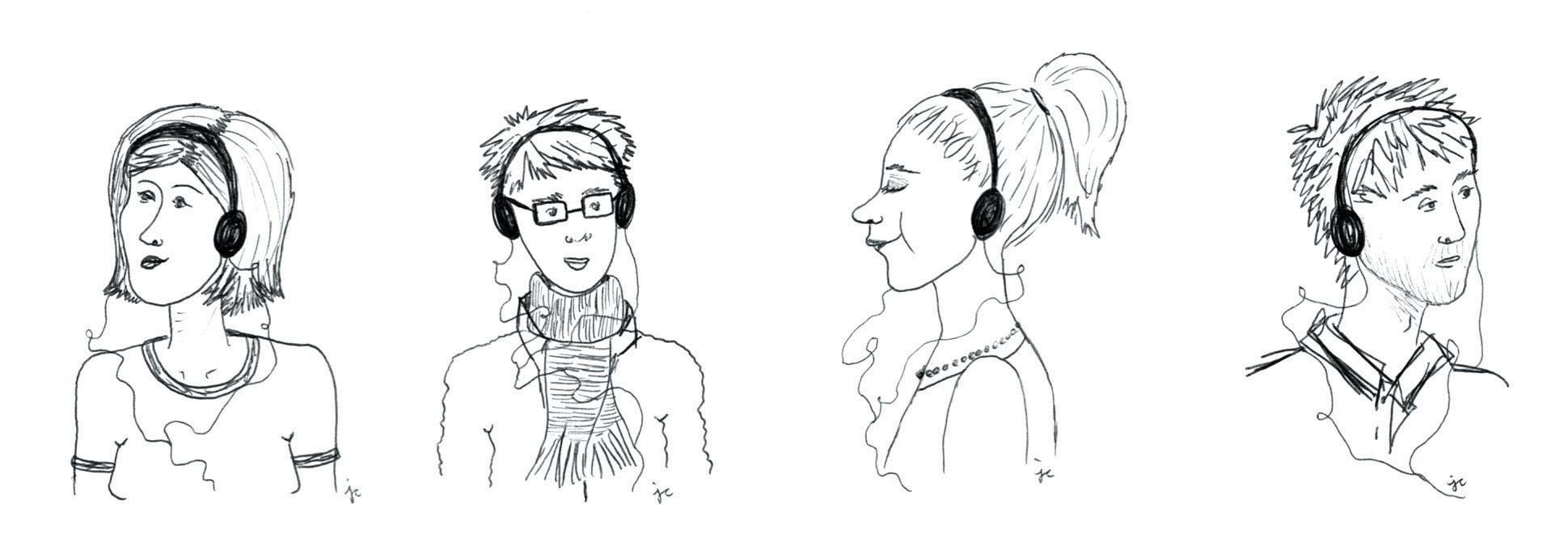
Unlike any other previous method of music duplication, a burnt CD is audibly indistinguishable from its original version. The only difference is that the burnt copy doesnʼt come with the album liner and didnʼt cost fifteen bucks. Some, such as my irreparable sister, Erica Hiar, deem that difference to be altogether insignificant. She loves her music but doesnʼt feel that liner notes and artwork are worth fifteen of her hard earned dollars. The artistic significance of the CD packaging aside, when you buy a CD most of that money is to pay the artist (by way of the greedy record companies) and not to cover the cost of the album art. Granted, itʼs not a perfect system of exchange, but when you burn a CD, the artist gets absolutely nothing. I feel that if you really love music, you should support the people who make the soundtrack of your life. I donʼt think it is a matter of something you “should” do. I firmly believe that if you burn a CD, you are stealing a bandʼs art. As anyone who has had their paintings or sculptures swiped from the VAC knows, that really fucking sucks. That said, I think there are some people who should get their shit stolen. I believe burning CDs is wrong, but as with any moral truth, a greater concept of good and evil should play into the decision making process. R. Kelly, for example, is evil. He makes good music that I occasionally like to listen to, but he also pees on little girls. Burn his music cause heʼs gonna burn in hell. I will also acknowledge that occasionally there can be an economic rationale for burning a CD. Not, “I donʼt have enough loot to buy this album,” but if an artist makes it a point to gloat about how much more cash they have then me I might unleash my inner socialist, rip their CD, and invest my fifteen dollars into my own damn bling fund. Iʼve also been known to burn dead peoplesʼ CDs. They canʼt take it with em and their kids deserve my money as much as I deserve my dadʼs drinking problem. With very few exceptions (three by my count), ripping CDs is wrong. If you love music,


